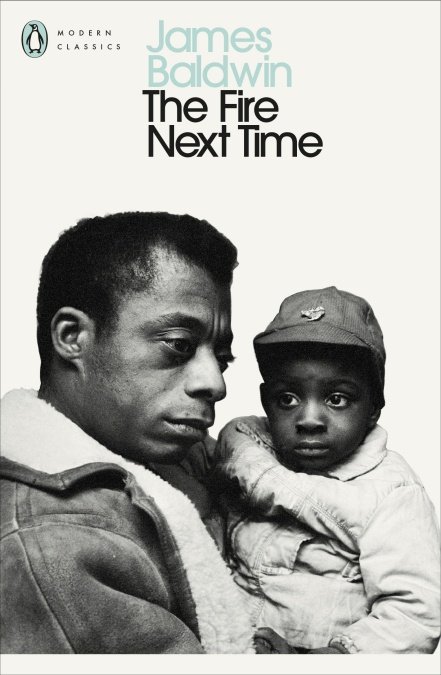A deep discussion on religion and race during the civil rights movement
Electronically published December 8, 2021 by Eliot Jamet, Staff Reporter
This article contains mentions of racism and abuse that may be triggering for some readers.
The cover of The Fire Next Time by James Baldwin. (Penguin Co.)
If there was one author who has struggled hard with discovering himself in his sexual identity, religion, and race it would be James Baldwin. Baldwin is an African American queer author who wrote short stories and essays based on dilemmas amid complex social and political atmosphere of his time.
The Fire Next Time, a novel written by Baldwin, contains two essays. One being a letter to his nephew that discusses the central role of race in America and its history, while the other talks about his relationship with race and religion.
The book was published in 1963 during the segregation era of the United States. It managed to be mainstream among the white American population thanks to its brilliant writing and Baldwin’s ability to hook readers by making them understand the struggles that African Americans face.
These autobiographical essays are meticulous on showing everything on both race and religion.
Baldwin struggles to write the essay for his nephew, beginning the piece by noting how he tore up five previous drafts. Given the heavy subjects he was going to write with his nephew, it is understandable that he had so much difficulty with the essay.
Baldwin explains to his nephew how his grandfather was mistreated by white people, and how his hatred turned into abusing his own family. He then tells him he needs to stay strong and choose to spread love rather than continuing a cycle of hate.
The second essay talks about Baldwin’s experience with religion and the contrast between instilling faith and peace, yet also bringing dread and self-hatred.
This is evident in sections such as when Baldwin described praying for himself or feeling like he was going against God by being his truest self. He continues on with how he was a pastor until his early adulthood, but afterwards, he decided to become atheist because religion limited his experience as a human being.
Baldwin’s essays and stories are wonderfully written with rich detail and a potent sense of dread that demonstrates his skill as an author.
An example of this was how he had a dinner with Elijah Muhammad, the leader of the Nation of Islam, an organization that advocated for violent tactics against white supremacy. Considering Baldwin had many opposing thoughts with Elijah, every topic of conversation felt like a risk of dying.
I’ve been atheist for most of my life, but as much as I criticized religion, I hadn’t really understood it. This book changed my perspective and inspired me to continue my writing.
I’m more engaged in not only writing but learning more about religion. Even if I am atheist, I’m nonetheless interested in learning more about other cultures that aren’t my own and I feel like this is important
The religion part of the book is detrimental to all of us as we are born in different families with varying traditions. The Fire Next Time presents an internal conflict of religion and morality that supersedes time and life experiences.
This book also shows us that the past is still relevant to our present. Baldwin had a special talent in processing his experience through the education of his contemporaries, and his work is still relevant given our nation’s ongoing racial injustice. As much as the hate against people of color is still occurring in America, the amount of progress since the ‘60s is undeniable and shows us that change is possible no matter what.

























